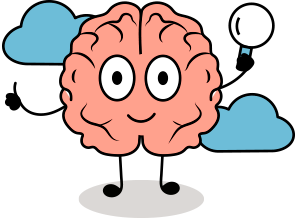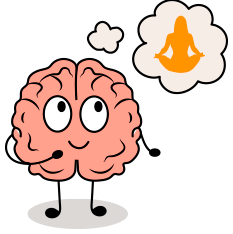The benefits of meditation on our health are astounding. Meditation is a powerful tool for mind-body healing that has been used for centuries. As someone who has been practicing meditation for years, I can attest to the many benefits it has brought to my life. Not only has it helped me to reduce stress and anxiety, but it has also improved my overall well-being. It helped me heal from chronic pain and MS. I also suffered from panic attacks since I was a young teenager. They were crippling my life. At one point I could not go into grocery stores. As a teen I had to do schoolwork at home for months in the ninth grade going to school exacerbated my panic attacks. I wish I could have learned about meditation at a younger age for I suffered throughout adulthood. I did not learn about meditation until I was forty-eight.
Most People Begin Meditation to Lower Stress

One of the most significant benefits of meditation is its ability to reduce stress and anxiety. When we meditate, we are able to quiet our minds and focus on our breath, which can help us to feel more relaxed and centered. This can be especially helpful for those who struggle with chronic stress, anxiety, and panic as I did. Additionally, meditation has been shown to lower cortisol levels, which is the stress hormone that floods our bloodstream when experiencing stress, worry, and fear.
Another benefit of meditation is its ability to improve our overall well-being. When we meditate, we are able to tap into our inner wisdom and connect with our true selves. This can help us to feel more grounded and centered, which can lead to greater happiness and fulfillment in life. Additionally, meditation has been shown to boost our immune system and improve our sleep, which can have a positive impact on our physical health.
The Science of Meditation
As someone who has been practicing meditation for several years, I can attest to the many benefits it has brought to my life. But what exactly is happening in our brains and bodies when we meditate? Let’s explore the science behind this ancient practice.
How Meditation Affects the Brain

Research has shown that meditation can lead to changes in the brain’s structure and function. One study found that regular meditation can increase the thickness of the prefrontal cortex, which is responsible for decision-making and attention. Another study showed that meditation can reduce activity in the amygdala, the part of the brain responsible for the fight or flight response.
Meditation has also been shown to increase the production of certain neurotransmitters, such as serotonin and dopamine, which can improve mood and reduce anxiety. Additionally, meditation can increase the production of gray matter in the brain, which is associated with learning and memory.
The Benefits of Mindfulness Meditation
One type of meditation that has gained popularity in recent years is mindfulness meditation. This practice involves focusing on the present moment and accepting it without judgment. Research has shown that mindfulness meditation can have a number of benefits, including:
- Reducing stress and anxiety
- Improving attention and focus
- Boosting immune function
- Lowering blood pressure
- Reducing symptoms of depression
One study even found that mindfulness meditation can lead to changes in gene expression, which may have long-term health benefits.
Overall, the science behind meditation is still evolving, but the research so far suggests that it can have a number of positive effects on both the brain and body. As someone who has experienced these benefits firsthand, I highly recommend giving meditation a try.
Mind-Body Connection
As I explore the benefits of meditation, I cannot help but be amazed by the power of the mind-body connection. Our thoughts and emotions have a direct impact on our physical health, and vice versa. Through meditation and mindfulness practices, we can tap into this connection and promote overall well-being.
The Power of Visualization
One of the most powerful tools for harnessing the mind-body connection is visualization. By picturing a desired outcome in our minds, we can activate the same neural pathways that would be activated if we were actually experiencing that outcome. This can have a profound impact on our physical and emotional states.
For example, if I am feeling anxious or stressed, I might visualize myself in a peaceful, serene environment, such as a beautiful beach or a quiet forest. As I focus on the details of this visualization, I can begin to feel my body relaxing and my mind calming down. This can help to reduce my stress levels and promote a sense of inner peace.
The Benefits of Yoga for Mind-Body Healing
Another powerful tool for promoting the mind-body connection is yoga. This ancient practice incorporates physical postures, breathwork, and meditation to promote overall health and well-being.
Through yoga, I have learned to tune in to my body and become more aware of my thoughts and emotions. By moving through the poses and focusing on my breath, I can release tension and stress from my body and mind. This can help to reduce anxiety, improve mood, and promote a sense of inner peace.
In addition to these mental and emotional benefits, yoga has physical benefits, such as improved flexibility, strength, and balance. By incorporating yoga into my daily routine, I am able to promote overall health and well-being, both physically and mentally.
Overall, the mind-body connection is a powerful tool for promoting health and well-being. By incorporating practices such as visualization and yoga into our daily routines, we can tap into this connection and promote a sense of inner peace and well-being.
Physical Benefits of Meditation
Reduced Inflammation and Pain
I have found that regular meditation practice has helped me reduce inflammation and pain in my body. Studies have shown that meditation can help reduce the levels of cytokines, which are proteins that promote inflammation in the body. By reducing cytokine levels, meditation can help reduce inflammation, which can lead to a reduction in pain and discomfort.
In addition to reducing inflammation, meditation can also help reduce pain by increasing the production of endorphins. Endorphins are the body’s natural painkillers. By increasing the production of endorphins, meditation can help reduce pain and discomfort in the body.
Improved Immune Function
Another physical benefit of meditation that I experienced is improved immune function. Which is very important when you have an autoimmune disease. Research studies show that individuals with autoimmune diseases have more of the stress hormone in their blood. The nervous system goes into hyper-stimulation, or fight or flight for long periods of time. Hence the reason for the over-hyper state of the immune system that begins attacking our own body. Studies have shown that meditation can help improve immune function by increasing the production of antibodies, which are proteins that help fight off infections and diseases. Meditation can help improve immune function and reduce the risk of infections and diseases.
Overall, I have found that regular meditation practice has helped me experience physical benefits such as reduced inflammation and pain, as well as improved immune function. By incorporating meditation into my daily routine, I have been able to improve my overall health and well-being by learning how to let go of long-term stress, anxiety, worry, and fear.
Mental and Emotional Benefits of Meditation
Reduced Anxiety and Depression

I personally have experienced a significant reduction in anxiety and depression symptoms since I started practicing meditation regularly. Studies have shown that meditation can reduce symptoms of anxiety and depression by promoting relaxation and reducing stress hormones in the body. When we meditate, we focus on the present moment and let go of negative thoughts, which can help break the cycle of rumination that often accompanies anxiety and depression.
Improved Emotional Regulation
Another benefit of meditation that I have noticed is improved emotional regulation. When I meditate, I am better able to recognize and regulate my emotions, rather than getting caught up in them. Studies have shown that regular meditation can increase activity in the prefrontal cortex, which is responsible for emotional regulation. This can lead to improved mood, better decision-making, and more positive social interactions.
Overall, the mental and emotional benefits of meditation are numerous and well-documented. By reducing anxiety and depression symptoms and improving emotional regulation, meditation can help us lead happier, healthier lives.
Spiritual Benefits of Meditation
Increased Self-Awareness and Connection to Higher Self

Meditation has helped me to become more self-aware and connected to my higher self. When I meditate, I am able to tune out the distractions of the world and focus on my inner thoughts and feelings. This has allowed me to gain a deeper understanding of myself and my place in the world. Through meditation, I have been able to identify negative thought patterns and behaviors that were holding me back and replace them with positive ones.
Meditation has also helped me to connect with my higher self. I believe that we all have a higher purpose in life, and through meditation, I have been able to tap into that purpose. When I meditate, I am able to quiet my mind and listen to the guidance of my intuition. This has helped me to make better decisions and live a more fulfilling life.
Enhanced Compassion and Empathy
Another spiritual benefit of meditation is enhanced compassion and empathy. When I meditate, I am able to connect with the world around me on a deeper level. I am able to feel the pain and suffering of others and respond with compassion and empathy. This has helped me to become a more caring and loving person.
Meditation has also helped me to cultivate a sense of gratitude for the blessings in my life. When I meditate, I am able to focus on the positive aspects of my life and let go of negative thoughts and emotions. This has helped me to appreciate the beauty and wonder of life and to live in the present moment.
In conclusion, meditation has numerous spiritual benefits that can help us to live a more fulfilling and meaningful life. Through increased self-awareness and connection to our higher self, and enhanced compassion and empathy, we can become better versions of ourselves and make a positive impact on the world around us.
Stress Related Disease: Mind-Body Connection https://1111newme.com/2023/04/24/stress-related-disease-mind-body/
12 Science-based benefits of meditation. https://www.healthline.com/nutrition/12-benefits-of-meditation

